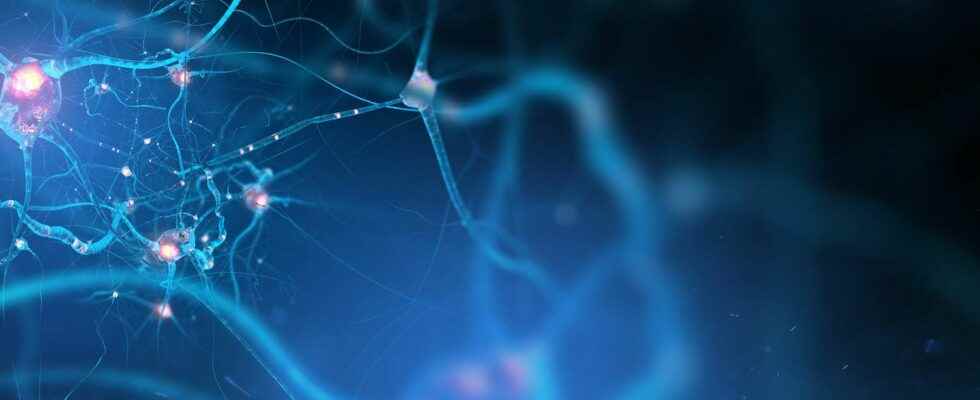By boosting neurogenesis, researchers have shown that the newly formed neurons can integrate into the neural circuits that store memories and restore their normal function. The stimulation of neuron production is an interesting avenue for treating patients with Alzheimer’s disease.
You will also be interested
[EN VIDÉO] Soon a blood test to detect Alzheimer’s disease? A blood test to detect Alzheimer’s disease that could be done at your doctor’s office would soon be possible.
The Alzheimer’s disease is characterized by a progressive loss of cognitive functions, which affects in particular the episodic memory, spatial recognition, visual orientation and semantic memory. Formed by several layers of neuronsI’seahorse is a brain structure that helps consolidate long-term memory. It plays a unique role as a “neurogenic niche”, where stem cells neurons differentiate into new neurons, a process called neurogenesis.
Previous work has shown that the neurogenesis of the hippocampus is altered in patients with Alzheimer’s disease and in laboratory mouse carriers of mutations genetic related to this disease. ” However, the role of newly formed neurons in memory formation and whether defects in neurogenesis contribute to cognitive impairments associated with Alzheimer’s disease are unclear. “, Explain in a press release Professor Orly Lazarov of the University of Illinois School of Medicine, co-author of the study of Journal of Experimental Medicine.
Stimulation of neurogenesis improves memory tests
First, the researchers stimulated neurogenesis in mice with Alzheimer’s disease by removing the embarrassed Bax, which plays a major role in neural stem cell death. More new neurons were thus formed, and they restored the animals’ performance in two different tests measuring spatial recognition and contextual memory.
Further analyzes showed an increase in the number of dendritic spines, structures in synapses known to be essential for memory formation.
By fluorescently labeling neurons activated during memory acquisition and retrieval in the hippocampus, the researchers found many new neurons in the brains of healthy mice, alongside older, more mature neurons. In mice with Alzheimer’s disease, memory storage circuits contain fewer new neurons, but the improvement is noticeable when neurogenesis has been increased.
Deficiencies of neurogenesis in Alzheimer’s disease
Secondly, the researchers wanted to verify their initial hypothesis by canceling the beneficial effects of the stimulation of neurogenesis. Thus, chemogenetic inactivation of immature neurons as a result of enhanced neurogenesis in diseased mice decreased their performance on memory tests.
The study shows that deficiencies in hippocampal neurogenesis therefore play a role in the memory deficits associated with Alzheimer’s disease. Newly formed neurons during neurogenesis have their importance for memory formation and storage, and their increase could present a therapeutic value in patients with Alzheimer’s disease.
Interested in what you just read?
